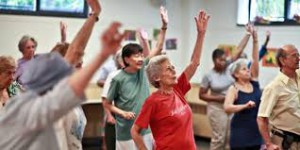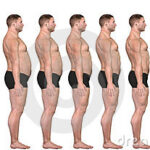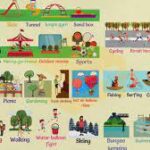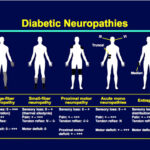Once we are born, we all have to die someday. During the course of our life, we learn a lot from our experiences, sometimes we do not. We all wish to live longer and age gracefully. You may recollect that our grandparents lived longer and healthier. This is largely due to reduced stress levels, natural unprocessed food, more of physical activity and less dependent on automated gadgets or electronic gadgets.
Ironically, people of today look for shortcuts to everything for example weight reduction surgery, face lift surgeries various plastic surgical techniques to help beat natural aging and also gadgets which can remotely control everything in life from opening the gates, switching on the lights, and locking the house.
Life has indeed become so fast, we hardly have the time to stop and think of ourselves. There are so many age defying cosmetics flooding the market these days.
Many people with diabetes live to a ripe age by leading a healthy lifestyle and regular check. However, some are lucky not to have diabetes until their middle years, but become diabetic after 65 years or more. In a study around 7% of the older adults were diagnosed as having diabetes by noting high fasting sugar, whereas 6% were diagnosed based on their post meal sugar levels.
Common changes with advancing age
Glucose intolerance increases and slowing of the glucose absorption occurs with advancing age. There is a decline in lean body mass, there may be an increase in body fat due to increasing insulin resistance. There may be a decline in level of physical activity. This population may be frail and have compromised dexterity.
The medicines that were once doing well in controlling sugar levels may not work as effective as age advances.
Older adults may not perceive hunger and may not feel thirsty as well. Digestion becomes delayed. Bowel habits may not be regular as before. Skin may become dry. The response to low sugar levels are much slower as age advances. Low sugar levels may manifest as confusion and dizziness. Tremors and sweating are not common.
Complications:
- Reduced vision, reduced mobility and memory loss is also common. Mistakes while dosing the medicines are also common.
- Complication of the eye, nerve and kidney is directly linked to the level of sugar control. Maintaining good levels can delay the onset or progression of the above complications.
- However, heart diseases stroke, and blood vessel problems are directly linked to the control of blood pressure and cholesterol panel. This is one reason why doctors prescribe medicines for cholesterol even when the levels are normal.
- With advancing age, any of the above complications are possible. The recovery from the complications will not be as smooth as when coming at a younger age.
- Some need assistance while walking such as a physical support or a walking stick. The floor in most of the places has a smooth surface and planting the feet is quite a hazard.
- Most of the time, older adults feel embarrassed to address their fears to their dependents. They may feel better to mention those to their healthcare providers.
There are not many studies involving older adults. However, based on some of the studies, the following are applicable:
- Sugar levels between 7 to 8.5 mmol/L is acceptable
- Blood pressure ≤ 140/80 mm Hg
- Total cholesterol ≤ 5.2 mmol/L
- HbA1C ( the three month average of sugar ) is not reliable in older adults as red cell span may be reduced with advancing age. Diseases of the kidney and liver may affect the value.
However, the levels of blood sugar and 3 month average are not to be as stringent as for that of a younger person.
Increase in urine output may be due to urinary bladder irritation or dysfunction, medications for reducing blood pressure or due to prostate enlargement in males and not always due to high blood sugar levels.
Low sugar levels can mimic having a fit or stroke.
Check up:
- The check up for the older adults must be more regular and frequent. The annual eye, heart check and foot check may have to be done more frequently if there are minor problems.
- Assessment of the kidney function is made by blood tests which may show changes. This can be tackled if checked for.
- Care of the feet may need heel protection, extra cushioning of wheel chair of bedding and prevention of dry skin is important.
- Driving at this age may be troublesome due to the reduced vision, reduced judgment and reflexes.
- Have the calcium, vitamin D levels checked as well as the bone mineral density. Older men have to be assessed for prostate as well.
- Make sure the older patient above 65 years must have taken a vaccination against pneumonia once and a vaccine against flu yearly.
- Many of the older adults may be having medicine such as diuretics ( which increase urination), hormones such for post menopause or steroids , and anti depressants which may worsen sugar control.
- Maintain good oral hygiene, check the feet, the skin folds for fungal rashes and boils which may go unnoticed by the patients.
- Make sure the bowels move once a day as constipation is very common.
The consultation with the health care professional:
- It will be useful if a small handbook can be used for mentioning their concerns as they may forget during the consultation.
- Maintaining a log book of the sugar readings and a diary of food intake will help to make inferences and plan management.
- The consultation can take more time than normal making the patient understand what is expected.
- The waiting period can be a problem as well. It will be worthwhile to have the blood and urine samples drawn early and they can have a light snack while waiting for their turn.
- Most of these adults are on many medicines and so may have gastritis.
- It is worthwhile to have a check by Gastroscopy ( a tube inserted through mouth to see if any ulcers in the stomach) or colonoscopy( tube inserted through anus to look for any problems down below)
- It sure pays to empathize with the elderly. They need the love and attention.
Exercise plans
- For those with eye problems or after laser treatment, it is advised to avoid intense exercises which may further increase the pressure.
- For those with neuropathy, it is advisable to perform exercises such as walking or cycling. Be careful of weight lifting.
- Jogging and swimming can be done if they have been doing the same routine over the years.
- However, get the doctors advice and clearance before planning a regime.
- Any exercise in water is useful and safe for the joints. It helps to burn calories as well.
- Walking together in groups or even performing aerobics, Yoga or Tai Chi also help in a better way as combining enjoyment with exercises make this pleasurable and motivated to continue with this. Yoga, meditation also help in relaxation.
The aims of management:
- The management of older adults involves avoiding low sugar levels, avoiding weight gain or loss in excess and to maintain well being.
- Metformin, gliclazide, Vildagliptin and Sitagliptin are safe to use among the oral medicines. If well tolerated the new class of medicines, SGLT2I and GLP 1 RA can be used as it will help those with established atherosclerotic disease or kidney disease.
- Insulin is safe if used sensibly. The advent of pen devices has helped the patient care. It allows accurate dosing and gives audible clicks while dialing the dose. Using the bottle of insulin and syringe may be clumsy at times and can give erroneous dosing which can be quite a headache.
- It is better to have simple treatment plans rather than complex regimes difficult to remember.
- The patient care given, the patient care giver, the patient care process and the patient care outcome are very important in the management of this elder population.
















